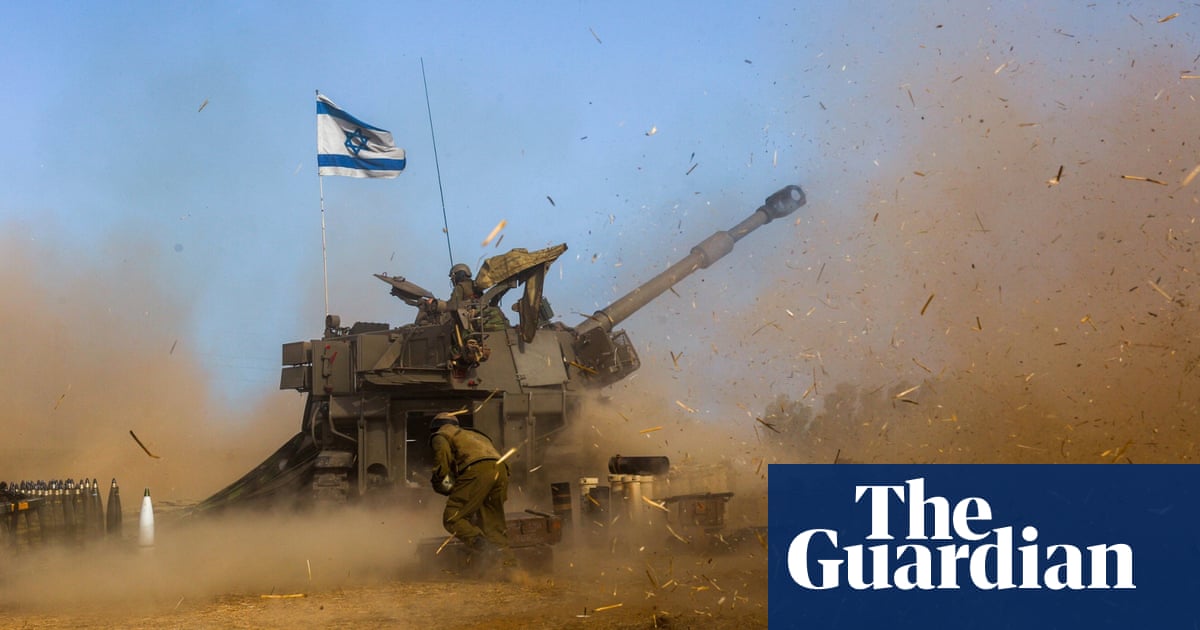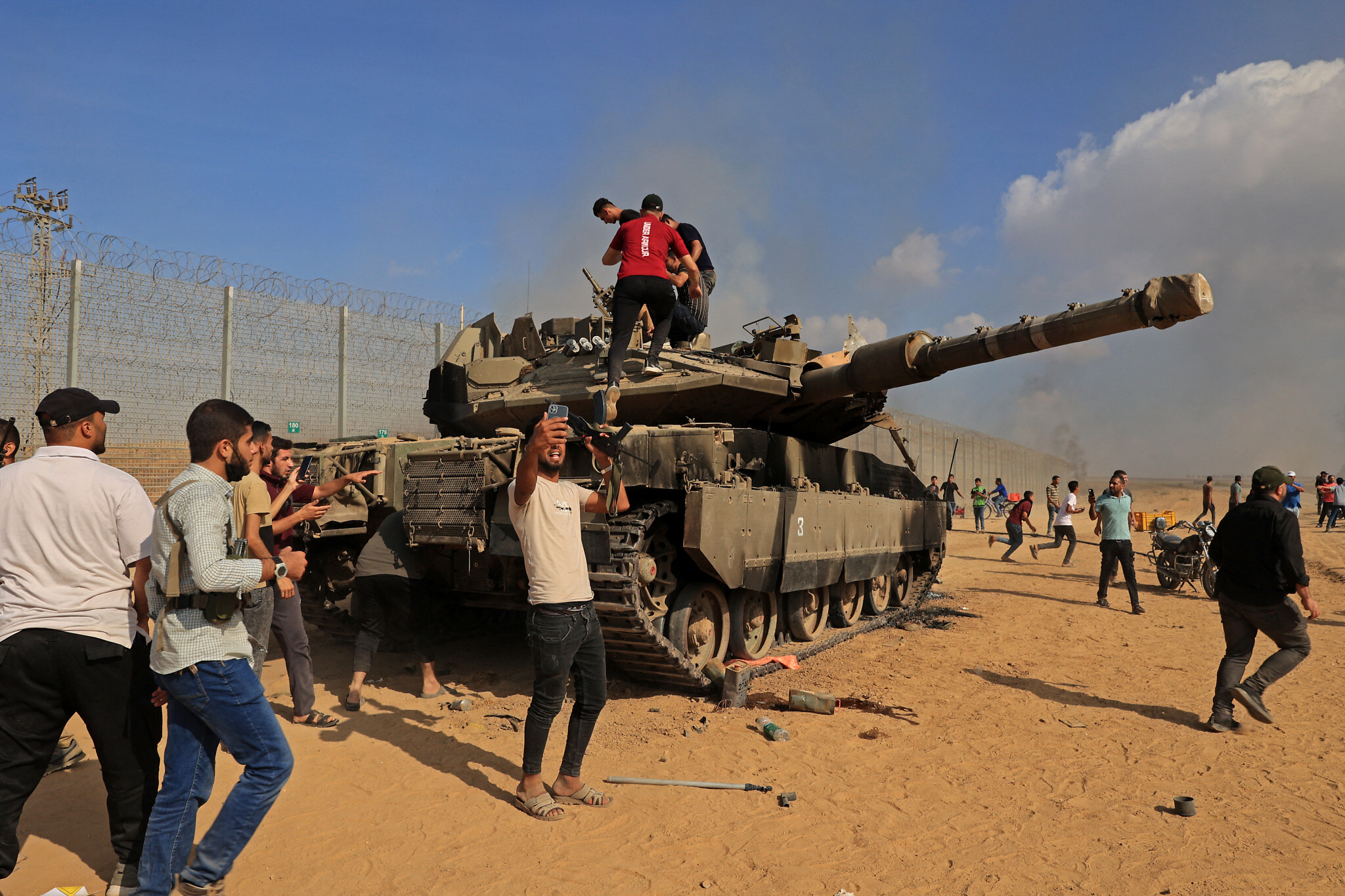The Brutal Conflict: Israel vs. Hamas Explained
The conflict between Israel and Hamas has been ongoing for decades, with both sides experiencing significant losses and suffering. The complex and multifaceted nature of this conflict has made it challenging to understand and resolve, but it is essential to delve into the history, politics, and social factors that contribute to this brutal conflict.
The Israeli-Palestinian conflict is a longstanding dispute over the territory of Israel, which has been occupied by Jewish Israelis since the late 19th century. The conflict is rooted in the struggle for self-determination and national identity, with both sides claiming historical and cultural ties to the land. The establishment of the State of Israel in 1948 led to the displacement of hundreds of thousands of Palestinians, known as the Nakba or "catastrophe" in Arabic, who were forced to flee their homes and become refugees.
Over the years, the conflict has ebbed and flowed, with periods of relative calm punctuated by outbreaks of violence. In recent years, the conflict has intensified, with Hamas, a militant Islamist group, launching rocket attacks against Israeli civilians and Israel responding with military operations against Hamas positions. The conflict has sparked widespread condemnation from around the world, with many countries and international organizations calling for a peaceful resolution.
History of the Conflict
Early Years: British Mandate and Jewish Immigration
- The British Mandate for Palestine was established in 1920, following the end of World War I, and was responsible for governing the territory until 1948.
- During this period, Jewish immigration to Palestine increased, leading to tensions with the existing Arab population.
- The 1936-1939 Arab Revolt and the 1945-1948 Palestinian exodus highlighted the growing divide between the two communities.
Israeli Independence and the Nakba
- The State of Israel was declared on May 14, 1948, leading to the displacement of hundreds of thousands of Palestinians.
- The Nakba, or "catastrophe," was a traumatic event for the Palestinian people, who were forced to flee their homes and become refugees.
- The subsequent war between Israel and its Arab neighbors led to the establishment of refugee camps and a permanent population of Palestinian exiles.
The Occupation and Territorial Disputes
- In 1967, Israel occupied the Gaza Strip and the West Bank, following the Six-Day War.
- The 1973 Yom Kippur War led to the establishment of the Palestinian Liberation Organization (PLO) and the signing of the Oslo Accords in 1993.
- The Accords aimed to establish a framework for peace, but ultimately failed to address the core issues of the conflict.
Current Conflict: Hamas and the Gaza Strip
Hamas's Rise to Power
- Hamas, an Islamist group, emerged in the late 1980s as a major force in Palestinian politics.
- The group's military wing, the Izz ad-Din al-Qassam Brigades, has been responsible for numerous attacks against Israeli civilians and targets.
- Hamas's leadership has sought to avoid direct confrontation with Israel, focusing instead on resisting the occupation and promoting Palestinian rights.
Gaza Strip: A Prison Colony
- The Gaza Strip, which borders Egypt and Israel, is one of the most densely populated places on earth.
- The territory has been under Israeli blockade since 2007, restricting the movement of people and goods.
- The blockade has led to severe economic hardship, widespread poverty, and a chronic shortage of basic necessities like food, water, and electricity.
Rocket Attacks and Israeli Responses
- Hamas has launched numerous rocket attacks against Israeli civilians, leading to Israeli retaliatory operations against Hamas positions.
- These attacks have resulted in significant loss of life on both sides, with thousands of Palestinians and Israelis killed or injured.
- The conflict has sparked international condemnation, with many countries calling for a ceasefire and an end to the violence.
International Involvement and Diplomatic Efforts
The Quartet on the Middle East
- The Quartet on the Middle East, comprising the United States, the European Union, Russia, and the United Nations, has played a key role in promoting peace talks.
- The Quartet's framework for peace, established in 2002, emphasizes the need for mutual recognition, compromise, and the establishment of a Palestinian state.
- However, the Quartet's efforts have been hindered by ongoing Israeli settlement expansion, Hamas's rejection of the Palestinian Authority, and regional instability.
Israeli-Palestinian Negotiations
- The 2000 Camp David Summit and the 2013 Kerry Initiative represent failed attempts to negotiate a comprehensive peace agreement.
- The current Israeli government, led by Prime Minister Benjamin Netanyahu, has expressed skepticism about the viability of a two-state solution.
- Many Palestinians, including Hamas, reject the idea of a two-state solution, advocating instead for a single-state solution with equal rights for all citizens.
The Role of the Arab League and Regional Actors
- The Arab League, comprising 22 member states, has played a significant role in promoting Arab-Israeli reconciliation and economic cooperation.
- Regional actors like Turkey, Egypt, and Jordan have also been involved in attempts to broker peace between Israel and the Palestinians.
- However, the conflict remains deeply entrenched, with many regional actors prioritizing national interests over the Israeli-Palestinian conflict.
The Human Cost of the Conflict
Palestinian Suffering and Displacement
- The conflict has led to the displacement of hundreds of thousands of Palestinians, many of whom remain in refugee camps or host countries.
- The economic impact of the conflict is severe, with poverty and unemployment rates among Palestinians significantly higher than the regional average.
- Many Palestinians struggle to access basic necessities like food, water, and healthcare due to the blockade and ongoing instability.
Israeli Casualties and Security Concerns
- Israel has suffered significant casualties and damage from Hamas
Christian Keyes Father
Karlan Connieenio
Nikki C
Article Recommendations
- Metro Boomin Height
- Did Mason Lose His Leg
- Sam Frankd Fans
- Dakota Tyler
- Camilla Araujod
- Chloe Fineman
- Who Is Orlando Brown S Mother
- Jonathan Brandis
- Justine Musk Net Worth
- Abril F Lix Murillo



